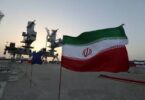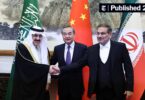Speaking at the inaugural function of Insaf Health Card for the people of tribal district, Prime Minister Imran Khan said that the country has come out from the debt trap to certain extent. However, the federal government has sought high interest bearing short term foreign currency loans from friendly countries including China, Saudi Arabia and United Arab Emirates which raise the foreign debt liability over $100 billion This what the independent economists had already projected early last year for the FY 19. In addition to the foreign loans, domestic borrowing of Rs. Rs. 2.6 trillion has been made by way of printing currency note which is the more irrational method of deficit for financing to meet the rising current expenditure. Acquisition of IMF loan package is also on cards.
Building a premise on the bilateral foreign economic assistance, Finance Minister Asad Umer gave the impression that now International Monetary Fund (IMF) will not impose tough conditions with its loan package to be agreed for Pakistan and this will be the last bail out package which be availed from this international donor. This was a sweeping statement ignoring the ground realities with regard the carry over huge foreign debt liabilities and persistent current account deficit during the next few years. A renowned economist and member of Prime Minister’s Economic advisory Council, Dr. Ashfaq Ahmad Khan disagreed to this sort of wishful thinking and said that IMF conditions had never been soft whether the loan package was small or big. He elaborated that during his service in the ministry of finances he was dealing with IMF loans for 16 years during which the conditions we never soft. He is very right because beggars are no choosers. As a drastic departure from the established practice of the past, this time the Prime Minister himself met with the IMF Managing Director Christina Laggard on the sideline of world economic summit held in Dubai. Previously finance minister and high official of the finance ministry used to hold the talks with the global lender. The opposition leaders have criticised the meeting of the Prime Minister with the IMF MD as against the dignity and prestige of a sovereign country. However, every Pakistani knows that the financial mismanagement and corrupt practices of the previous two governments of PPP and PML-N pushed the country to the ventilator of IMF.
Confirming the contention of Dr. Ashfaq Ahmad Khan about tough condition of Washington based international lending agency, Petroleum Minister Ghulam Sarwar, while talking to media minced no words and categorically said that IMF is exerting pressure for further increase in gas tariff. If the government has decided to swallow the bitter pill of tough conditions attached with the IMF loan package which is essential instrument for seeking the much needed project loans from the World Bank and the Asian development Bank then the government would have no other choice but to increase the gas and power tariff. Central Purchasing Agency has moved a proposal Rs.1.93 per unit hike in electricity tariff to the National Electric Power Regulatory Authority (NEPRA). Last month, NEPRA has notified Rs 0.57 per unit increase in the power tariff.
Domestic gas is relatively cheaper input for electricity generation as compared with luxury of generating electricity from the expensive Diesel and Furnace Oil based thermal power generation. The per unit production cost of electricity from domestic gas is Rs. 5 as compared with the production cost of Rs. 20 for diesel and Rs. 14 for the Furnace. The unaffordable luxury of thermal power generation from diesel and furnace oil along with 40 percent idle capacity charges was slapped on the poor people of the country by second Benazir Bhutto Government. Acceptance of IMF condition of hiking the gas tariff will have a multiplier effect on the cost of production in the manufacturing and energy sectors, further depressing the growth of the economy by jacking up inflation on the one hand and intensifying the recession cycle. As the next IMF programme is frontloaded and government has to fulfill the agreed condition before loans are released then the conditions pertaining to increase revenue generation for direct taxes should be implemented first.






